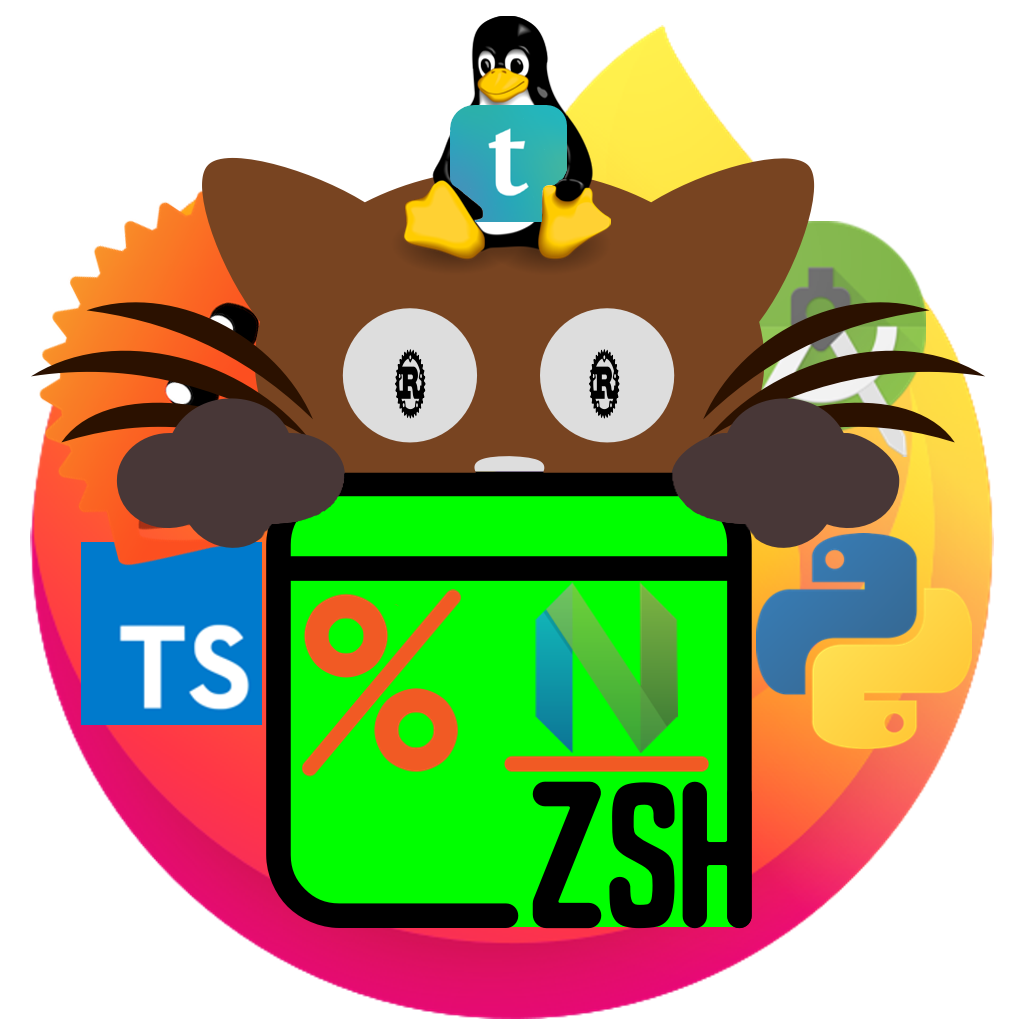- cross-posted to:
- memes@lemmy.world
- cross-posted to:
- memes@lemmy.world
And yet I’ve never had an apt upgrade break my whole system.
Yeah, maybe I’m just not smart enough but I always have the best luck with Debian/Ubuntu style distros. I’m glad Arch users are happy with Arch, it just doesn’t work for me
sudo dpkg --configure -a
my beloved
Define ‘Break’… /j
Unable to boot after the update. That’s happened to me multiple times with pacman, so I eventually switched to Fedora.
Jokes on you, this happened to me on fedora with an nvidia gpu.
@hperrin@lemmy.ca Interesting, how?
On artix I update system and nothing breake my system.No idea. I updated it, and then it wouldn’t boot. So, I reinstalled.
This is a recent example of a problem that required manual intervention or the system would not boot after updates. This happens every now and then on arch, it’s why you should check arch news before updating.
For me it was that it said “forcing this upgrade may break your system, do you want to force the upgrade?”
And I was like “yeah, fuck it”, then installed mint after my system didn’t come back up (it was time for my annual re-install anyway)
You must be very lucky then. I’ve seen it happen so many times.
Agreed. I ran a system upgrade at home and then went to a coffee shop. My machine didn’t boot at the coffee shop. I installed Fedora instead of doing what I had gone there to do
Shouldn’t
updatecome beforeupgrade?Yup
Debian users:
What do you mean by PPA?
Also:
apt-getis intended as low-level APT interface for scripts, just useaptinstead. I get why people are confused nowadays, because APT documentation is terrible.apt-getis intended as low-level APT interface for scriptsAh, that’s what they call it now. I wonder to what they degraded dpkg then?
Isn’t dpkg just the program that installs DEB files, without handling dependency resolution?
Yes, apt and apt-* use it.
Also you usually do update before upgrade, not after
I thought apt-get was a transitional command made so that the devs could make a breaking change, but now that that is done, its no longer needed
This meme brought to you by outdated packages in the official repo
Mfw I get to go through the same yt-dlp steps after a fresh install

Why -Syyu and not -Syu?
You … you understand pacman cli switches?
No, I just hold my y key until there are many many ys.
y?
-Syyyyyyyyyyyyyu
Yes. -Syyu is for “Sync (repository action), database update (forced), upgrade packages”, in that order (though the flags don’t have to be). Doubling a lowercase character like yy or uu is to force the operation. yy in particular shouldn’t be needed, as it only overrides the “is your database recent” check. Unless you’re updating more than every 5 minutes, using a single y is perfectly fine.
deleted by creator
That’s happened like once in the last 3 years and the notice was right in pacman before you accepted.
I use informant which in theory fixed this but even then there is an issue on it about some things happening earlier in pacman than the transaction hook it uses so… Bleh. This shit needs to be built into pacman itself, seriously.
Been using Arch since 2019, that has never happened to me. Apparently it’s all about the device behind the keyboard, not about pacman. 🤣
Every time there’s been need for manual intervention the update just fails, I check the news to do the thing, then update as usual
Fedora: sudo dnf update, type the letter y, done.
I don’t understand why apt still has update and upgrade as two separate things.
Sometimes you just wanna see what’s out there
You can have a separate refresh/update command and still make the upgrade-command auto-refresh.
(You can also have a
--no-refreshflag on the upgrade-command, in case you don’t want the refresh for whatever reason.)
You can even add the -y flag to skip typing y. Which apparently doesn’t work for pacman judging by the command above
Since lowercase
yas an option to uppercaseSalready exists to update the database,--noconfirmexists to continue without user confirmation.Pacman has the worst CLI flags I’ve ever seen.
I’m more of a fan of just adding the -y parameter to skip the question and go straight to updating. Works with the install command too.
Never had an update break on headless Debian. Even when switching from 12 to 13. That shit is solid.
I’m getting used to arch on my main desktop and I still can’t figure out why the hell “sync” is the wording pacman uses for updating or why ‘y’ is refresh. Sync refresh upgrade my ass. I will admin, it is fast.Because you’re “sync”ing with the state of the repo. You’re not necessarily upgrading. Sometimes the repos have a lower version than what you have, so you would be downgrading in that case. Or sometimes you’re just using it to install a new package and its dependencies.
-uis upgrade. And-uuis upgrade or downgrade. It’s used to filter the packages that sync operates on, so basically you’re syncing any packages that have a different version than the repo.-yfor refresh? No idea.-ris root, so I guess it was already in use by the time someone added refresh?I did it on the GUI all day yesterday! The only problem Debian has is being unbreakable!
Heck, I switched repos from bookworm to trixie and installed 3 GiB worth of packages - 2.5k packages - and booted into a PERFECTLY WORKING system!
Installed the other 8 GiB afterwards and booted into a perfectly working system. Just before I thought Steam was broken, I rebooted and it came alive too.
And my GTX 1650 worked right away! Do you know how many times the daily 1 GiB update on Ubuntu breaks that?!
Flatpak updates are kinda’ slow, no 4 GiB downloads needed per day, Debian updates arrive at like 200 MiB a month except for apps like VSCode, Signal, or Discord. And - to be honest - that’s the Windows-unlike experience every distro is missing.
Debian really is unbreakable.
Zypper gang, dup!!
[an hour later]
Done!(But actually I like it.)
zypper is unironically the best package manager. Absolute s-tier god-mode. It’s slow as hell, but that’s because it makes atomic updates. If the install doesn’t go well, it just rolls it back. I fucking love zypper, and I want to shake the hands of the people responsible for it.
Totally!!
I’m fully spoiled by it.
(And one of the reasons family and friends happen to run Tumbleweed.)
Using Debian as my main laptop distro, I am usually an arch user but figured with it being a light weight laptop I wouldn’t need arch, its been fine but installing updates can be frustrating, after a few weeks gnomes appstore breaks, then I need to use terminal to apt update, apt --fix-broken install.
Don’t use gnome appstore. It’s always broken
Don’t use gnome.
Don’t use.
Fuck gnomes
Which Debian distribution are you using, stable, testing, unstable?
I take care of a couple machines for family members. Those have Debian stable with automatic update (unattended-upgrade). I can’t recall the system or packages ever breaking. At most users are a bit confused when an update change the UI a bit.
Sticking to stable and avoiding third party repos gives a pretty solid system. Only developers or sysadmins might consider Debian testing. Only people working on Debian itself should use unstable.
Pacman sucks ass and this is a hill I will die on. Sure, it’s fast, but there’s such a thing as too fast. Like when I was updating the system once and it decided to delete bash to replace it, but it couldn’t replace it because bash was gone already and my shell died since that’s what I was logging in with. Oops! System is completely unusable now, got to reinstall arch again, because pacman pulls stunts like this.
There’s no way that’s true, right? Surely, the program would be smarter?
You would think that, but it happened to me several times over the course of about five years, with different parts of the core of the os. Granted, this was back when arch was in its infancy, before systemd was even a thing, so pacman may be smarter now. But I’ve completely written it off since it happened so many times. And reinstalling arch back them took the better part of a weekend, so it’s not like it was an easy fix.
This type of shit happens if you intentionally mess up your own system (or use Manjaro).
pacmanrequires extra confirmation (instructions only found in its man page) before even allowing you to deletebash(baserequires it).bashhas also never been replaced, and even if you deleted it, it would still be loaded in RAM. Even still, if you deleted it and immediately rebooted, it would be a quick fix for anyone familiar with the distribution they’re using, and would not require reinstalling the whole thing.
sudo nix-rebuild switch
uhm, akshually it’s
sudo nixos-rebuild switch --upgradeThis is the way.
nix flake update nix flake check --no-build git commit -a nh os switchIs the routine I’ve settled into. Flake update because I use flakes, flake check because it’s easier to see any warnings about deprecated options and the like so I can fix them preemptively, git commit after the check to avoid back-to back commits where the second is fixing some issue with the first, and nh because I like the pretty dependency graph and progress bar.
Lots of useful stuff here. Taking all of it.
Does
nhusefast-nix-build(or whatever the fancy nix builder CLI is called) to build your system?I honestly don’t know how nh works under the hood, but it does seem to do concurrent builds, so it’s probably something like that.
Actually
nixos-rebuild switch --sudo.
Yay
Flatpack update
Flatpak, not pack *
Lol the terminal doesn’t autocorrect like my phone
And that’s why I don’t use PPAs, but you do you, I guess…
Yep. I’m on Debian for many years now. Every broken update I can recall was either caused by an undocumented PPA or nvidia drivers (which have finally been fixed, for my card at least)
--noconfirm























